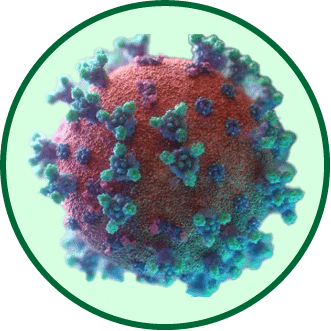Nourishing Foundations: Healthy Eating and Balanced Nutrition for Lifelong Wellbeing
Introduction:
Embarking on a journey toward optimal health and vitality necessitates more than mere sporadic adjustments; it calls for a comprehensive understanding and consistent practice of healthy eating and balanced nutrition. This encompassing guide serves as a beacon, illuminating the path to nourishment through evidence-based principles, practical strategies, and an unwavering commitment to holistic health.
1. The Basics of Balanced Nutrition: What Constitutes Healthy Eating?
- Understanding Nutrients: A dive into essential nutrients - macronutrients (carbohydrates, proteins, fats) and micronutrients (vitamins, minerals) - and their roles in maintaining bodily functions.
- Dietary Balance and Variety: The significance of a varied diet that balances different food groups, providing a symphony of nutrients for optimal health.
- Hydration's Role: The critical part of water in nutrition, facilitating vital bodily processes including digestion, absorption, and transport of nutrients.
- Keywords: nutrients, macronutrients, micronutrients, dietary balance, hydration.
2. Decoding Dietary Guidelines: How to Interpret and Apply Nutritional Recommendations
- Understanding Dietary Guidelines: An overview of global nutritional recommendations and how they provide a framework for healthy food choices and lifestyle patterns.
- Portion Control: Insights into managing food portions to balance calorie intake with energy expenditure, crucial for maintaining a healthy weight.
- Nutrient-Dense vs. Empty Calories: The differentiation between nutrient-rich foods and those with empty calories, emphasizing the quality of calorie sources.
- Keywords: dietary guidelines, portion control, nutrient-dense, empty calories.
3. Planning for Success: Strategies for Healthy Meal Prep and Eating Habits
- Meal Planning Basics: How planning meals contributes to balanced nutrition, supports dietary goals, and reduces impulsive or unhealthy food choices.
- Mindful Eating: Introducing the concept of mindfulness as a tool to enhance the eating experience, support digestion, and promote satisfaction with smaller portions.
- Breaking Bad Habits: Identifying and overcoming common barriers to healthy eating, such as emotional eating, late-night snacking, or excessive consumption of added sugars.
- Keywords: meal planning, mindful eating, bad habits, emotional eating.
4. Special Considerations: Adapting Nutritional Intake for Different Life Stages and Dietary Needs
- Life Stages: Discussion on how nutritional needs vary across different life stages - from childhood and adolescence to adulthood and older age - and how to adapt dietary intake accordingly.
- Dietary Restrictions and Allergies: Guidance for maintaining balanced nutrition within the constraints of dietary restrictions, intolerances, or allergies.
- Plant-Based and Vegan Diets: Considerations for ensuring complete nutrition from plant-based sources, addressing potential nutrient deficiencies.
- Keywords: life stages, dietary restrictions, allergies, plant-based, vegan.
5. The Impact of Diet on Physical and Mental Health: Food as Medicine
- Diet and Chronic Diseases: Review of research showing the impact of diet on the prevention and management of chronic diseases such as diabetes, heart disease, and obesity.
- Mental Health and Nutrition: Exploration of the emerging field of nutritional psychiatry, highlighting the connection between diet and mental health, particularly mood and cognitive function.
- Gut Health and Overall Wellbeing: Insights into the gut-brain connection and the role of diet in maintaining a healthy microbiome, influencing overall health.
- Keywords: chronic diseases, mental health, nutritional psychiatry, gut health, microbiome.
6. Navigating the Modern Food Environment: Making Informed Choices
- Interpreting Food Labels: Empowering consumers to understand and utilize food labels and ingredient lists to make informed dietary choices.
- The Organic and Non-GMO Debate: An unbiased look at the discourse surrounding organic and non-GMO foods, helping readers make informed decisions based on their values and health perspectives.
- Sustainable Eating: Considering the environmental impact of food choices and discussing practices that support sustainability along with personal health.
- Keywords: food labels, organic, non-GMO, sustainable eating.
Conclusion:
Healthy eating transcends the act of fuelling our bodies; it's an affirmation of our respect for our health and life. Embracing balanced nutrition is not about stringent limitations or depriving ourselves. Instead, it's about enriching our lives with foods that heal, energize, and nourish us holistically. As we journey through the diverse landscape of nutrition, let us make informed, mindful choices that resonate with our health goals, lifestyle, and the well-being of the planet we call home.
(Note: This article is intended for informational purposes only and does not constitute medical or nutritional advice. Always seek the advice of a qualified health provider with any questions you may have regarding a medical condition or dietary needs.)
Keywords: healthy eating, balanced nutrition, dietary guidelines, meal planning, life stages, chronic diseases, sustainable eating.
